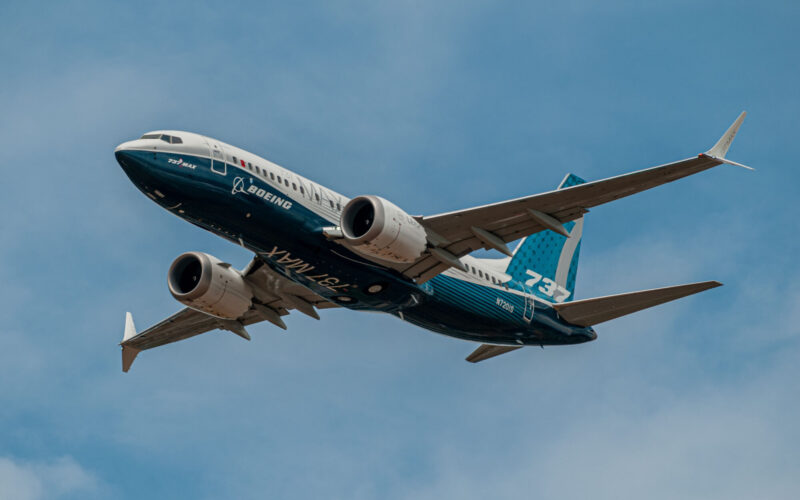Boeing has reportedly not provided complete documentation in the certification review process for the 737 MAX 7, another setback for its plans to start delivering the smallest version of its newest narrowbody jet.
According to reports by the Wall Street Journal and Reuters, the Federal Aviation Administration (FAA) has told Boeing that some of the key documents the manufacturer provided are not complete, while others need reassessing for human factors assumptions.
The news outlets cited a letter from the FAA to Boeing, dated October 12, 2022. In it, the agency said some reviews could not be completed “due to missing and incomplete information regarding human factors assumptions in catastrophic hazard conditions”.
Investigators from the NTSB have previously raised concerns that during the original certification process for the 737 MAX, Boeing and the FAA made incorrect assumptions about human factors and how quickly pilots would react to unintended MCAS operation. Failure of the MCAS system was behind the two fatal Lion Air and Ethiopian Airlines 737 MAX crashes in 2018 and 2019.
In a statement cited by Reuters, Boeing said that it is focused on meeting regulatory requirements for the 737-7 and that “safety remains the driving factor”.
Boeing has already missed other submission deadlines in the certification review process for the 737 MAX 7. It needs to get certification for the MAX 7 first, before it can get approval for the larger MAX 10.
If Boeing fails to get the MAX 7 and the larger MAX 10 approved by the FAA by December 31, 2022, then it will have to equip both variants with a modernized flight crew alerting system to meet additional safety requirements, as per the new Aircraft Certification, Safety and Accountability Act (ACSAA) which will be implemented on January 1, 2023.
There are efforts in Congress to extend an exemption for Boeing from these new alerting requirements. Pilots oppose this, saying Boeing should install the most modern alerting systems instead to help rebuild trust in the manufacturer.
The 737 MAX 7 can carry up to 153 passengers in a two-class configuration, with a maximum capacity of 172 seats. It has a range of 3,850 nautical miles (7,130 kilometers).

